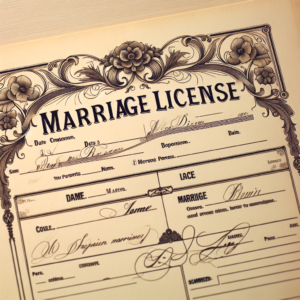Same-Sex Marriage: A Revolutionary Shift in Global Human Rights
The recognition of same-sex marriage has emerged as a pivotal issue in the global human rights landscape, reflecting broader societal shifts toward acceptance and equality. As nations grapple with the implications of legalizing same-sex unions, the movement has sparked intense debates, legal battles, and cultural transformations. This article delves into the historical context, key legal milestones, societal impacts, challenges faced by advocates, the role of international organizations, and future perspectives on the journey toward global acceptance of same-sex marriage.
Understanding the Historical Context of Same-Sex Marriage and Its Global Evolution
The journey toward the recognition of same-sex marriage is deeply rooted in a complex historical context that spans centuries. Initially, same-sex relationships were often criminalized or stigmatized, with many societies viewing homosexuality as a deviation from normative behavior. The late 20th century marked a significant turning point as the LGBTQ+ rights movement gained momentum, fueled by a growing awareness of human rights and social justice. Countries like the Netherlands led the way by legalizing same-sex marriage in 2001, setting a precedent that would inspire similar movements globally. Over the past two decades, the conversation surrounding same-sex marriage has evolved from a fringe issue to a mainstream human rights concern, reflecting changing societal attitudes toward love, family, and equality.
Key Legal Milestones in the Fight for Same-Sex Marriage Worldwide
The legal recognition of same-sex marriage has been punctuated by several key milestones that have shaped its trajectory across different nations. In 2003, the U.S. Supreme Court's ruling in Lawrence v. Texas decriminalized same-sex sexual activity, paving the way for future legal battles. The landmark decision in Obergefell v. Hodges in 2015 established the constitutional right to same-sex marriage in the United States, influencing other countries to reconsider their stances. Similarly, in 2017, Australia legalized same-sex marriage following a national postal survey that revealed overwhelming public support. These milestones not only reflect changing legal frameworks but also signify a broader acceptance of LGBTQ+ rights, inspiring activists and allies worldwide to advocate for marriage equality.
The Impact of Same-Sex Marriage on Societal Norms and Values
The legalization of same-sex marriage has had profound implications for societal norms and values, challenging traditional notions of family and relationships. As same-sex couples gain legal recognition, public perceptions of LGBTQ+ individuals have shifted, fostering greater acceptance and understanding. Studies indicate that legalizing same-sex marriage correlates with decreased discrimination and increased visibility of LGBTQ+ issues in mainstream discourse. Furthermore, the normalization of diverse family structures has prompted discussions about the definition of marriage itself, encouraging societies to embrace inclusivity and redefine love beyond heteronormative boundaries. This transformation not only benefits same-sex couples but also enriches the social fabric by promoting diversity and acceptance.
Analyzing the Opposition: Challenges Faced by Same-Sex Marriage Advocates
Despite significant progress, advocates for same-sex marriage continue to face formidable opposition rooted in cultural, religious, and political beliefs. In many regions, conservative factions argue that legalizing same-sex marriage undermines traditional family values and poses a threat to societal stability. This opposition often manifests in legislative efforts to restrict marriage rights or in referendums aimed at reversing existing laws. Additionally, in some countries, LGBTQ+ individuals face violence and discrimination, further complicating the fight for equality. The intersectionality of race, religion, and socioeconomic status adds layers of complexity to the movement, necessitating a multifaceted approach to advocacy that addresses the diverse challenges faced by marginalized communities.
The Role of International Organizations in Promoting Marriage Equality
International organizations play a crucial role in advancing the cause of marriage equality on a global scale. Entities such as the United Nations and various human rights NGOs have been instrumental in advocating for LGBTQ+ rights, framing them as fundamental human rights issues. These organizations provide platforms for dialogue, share best practices, and mobilize resources to support local activists. Initiatives like the Yogyakarta Principles, which outline international human rights standards for sexual orientation and gender identity, have further galvanized efforts to promote marriage equality. By leveraging international pressure and fostering collaboration among nations, these organizations contribute to a more unified global movement for LGBTQ+ rights, including the right to marry.
Future Perspectives: The Ongoing Journey Toward Global Acceptance of Same-Sex Marriage
As the movement for same-sex marriage continues to evolve, the future remains a tapestry of hope and challenges. While many countries have made significant strides toward legal recognition, others lag behind, often influenced by deeply entrenched cultural norms and political resistance. The ongoing journey toward global acceptance necessitates sustained advocacy, education, and dialogue to dismantle prejudices and promote understanding. Emerging trends, such as the increasing visibility of LGBTQ+ individuals in media and politics, suggest a gradual shift toward acceptance. However, the path forward will require resilience and solidarity among advocates, allies, and international organizations to ensure that the rights of same-sex couples are recognized and protected worldwide.
The fight for same-sex marriage represents a revolutionary shift in global human rights, challenging long-standing norms and advocating for equality and acceptance. As nations navigate the complexities of this issue, the progress made thus far serves as a testament to the power of advocacy and the resilience of the LGBTQ+ community. While challenges remain, the collective efforts of individuals, organizations, and governments continue to pave the way for a more inclusive future, where love knows no boundaries and all couples can enjoy the legal recognition and dignity they deserve.
